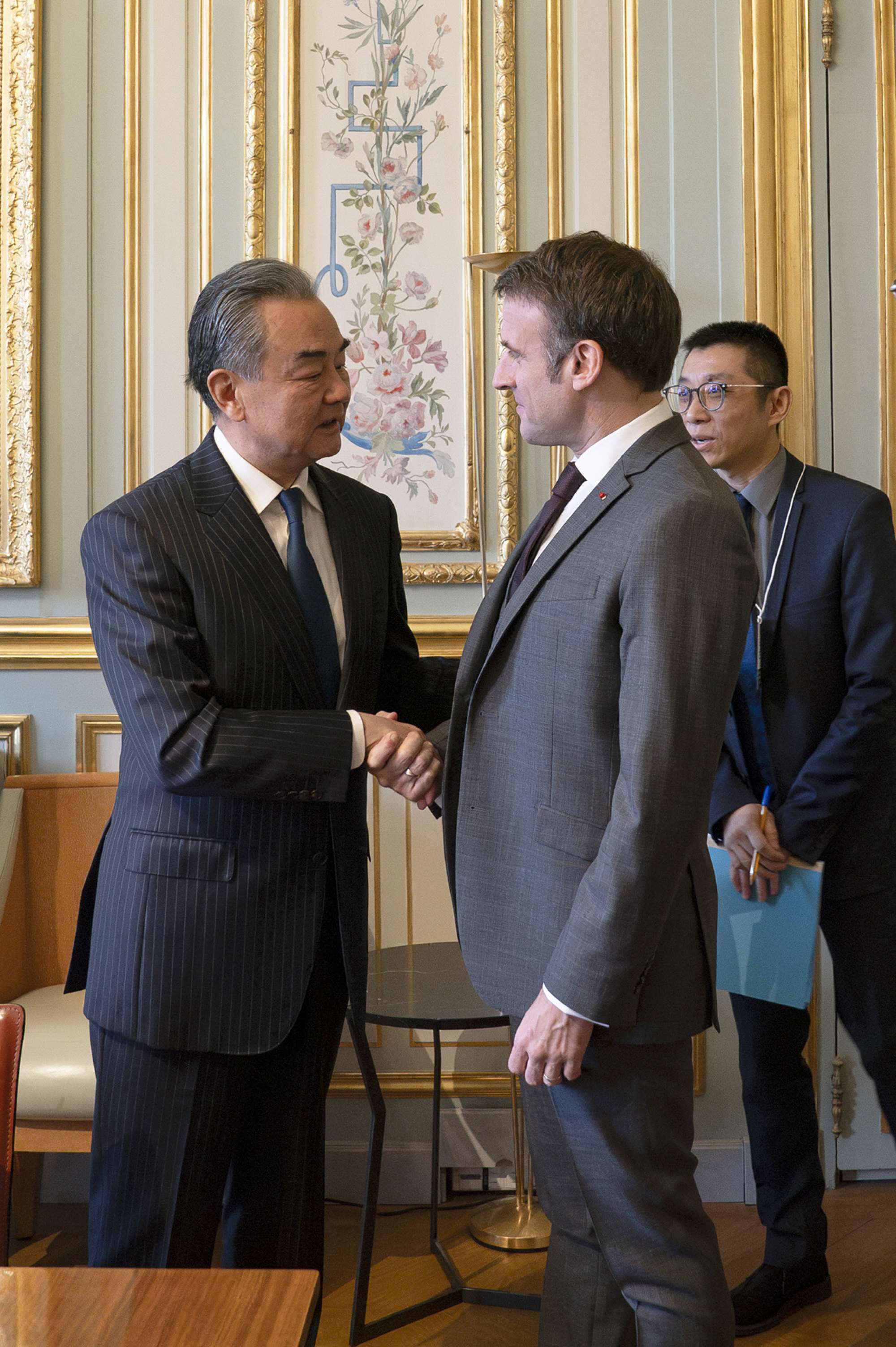Why Trump, US elections may buoy China’s chances as it seeks to gain trust in more ‘rational’ Europe
Leaders including German Chancellor Olaf Scholz and European Union foreign affairs chief Josep Borrell committed to “oppose” decoupling from China, according to Chinese readouts of their meetings with Wang.
As Europe reels from Trump threat, Ukraine and Middle East, Wang heads to Munich
“The European side has a positive attitude towards strengthening exchanges between China and the EU at all levels and is very enthusiastic about deepening practical cooperation,” Wang said upon his return to China on Wednesday.
The Chinese foreign minister’s trip to Europe had also taken him to Spain and France after Germany.
“I feel that Europe’s rational understanding of China is increasing, and it believes that China’s development is in line with the logic of history. Europe should not be afraid of this, let alone reject it,” Wang said.
Observers said concerns over US elections later this year could work to China’s benefit as it seeks to gain Europe’s trust to defend a multipolar international system amid geopolitical rivalry with the United States.
Ding Chun, a Fudan University professor specialising in European studies, said the uncertainty of the US elections and the fast-changing geopolitical environment could drive Europe to form a more rational approach towards China.
“One of the biggest variables for [Europeans] right now, or what they are most worried about, is actually the outcome of the election in the United States … it will affect the outcome of the Russia-Ukraine conflict,” Ding said.
Fears that Republican presidential front runner Donald Trump may return to the White House are mounting in Europe.
The former president has opposed fresh funding for Ukraine, and said earlier this month he would encourage Russia to “do whatever” it wanted to any Nato ally that failed to meet its financial obligations.
Trump has long complained about the lack of defence spending by other Nato countries and repeatedly threatened to pull the US out of the alliance, sparking fears over emboldening Russia.
Ding said Europe was preparing for a possible Trump presidency, which was expected to worsen US relations with Europe.
European measures taken include adjusting its policy towards China, which it regards as a rival, a competitor but also a partner that has an “irreplaceable” role in global governance, he said. China also shares a common goal in defending multilateralism, in contrast to the unilateralism and protectionism championed by Trump.
“[The EU] may also be afraid that if it treats China as primarily a rival, like the United States currently tends to do, it might push China completely towards Russia. This is something it might not be able to afford,” Ding said.
China’s relations with European countries have been strained in recent years over Beijing’s close relations with Moscow as the Russian military operation in Ukraine enters its third year.
Despite taking a neutral stance on the conflict, Beijing has yet to condemn the Russian invasion. There is also speculation that it is considering sending weapons to Moscow, a claim Beijing has denied.
‘We don’t sell weapons to conflict zones’: China makes pledge to Ukraine in Munich
Meanwhile, Europe has faced increasing pressure from the US to form a united front to counter China’s influence around the world.
Wang Yiwei, a European studies specialist at Renmin University, said Europe recognised the importance of “strategic autonomy” and was not willing to blindly follow US policy towards China.

“Europe is very aware that the United States is guiding [Europe] towards a direction of confrontation with China, but Europe is not willing to completely follow the United States,” Wang at Renmin said.
He said while Europe recognised the need to continue practical cooperation with China in areas where this was possible, China’s ties with Russia and trade disputes with Europe continued to strain ties.
However, Ding said China and Europe had a mutual “understanding” to not let specific disputes dominate overall ties.
“As long as you are not countering each other strategically, or if you want to use [these disputes] as a leverage … you can always find a solution to it accordingly.”